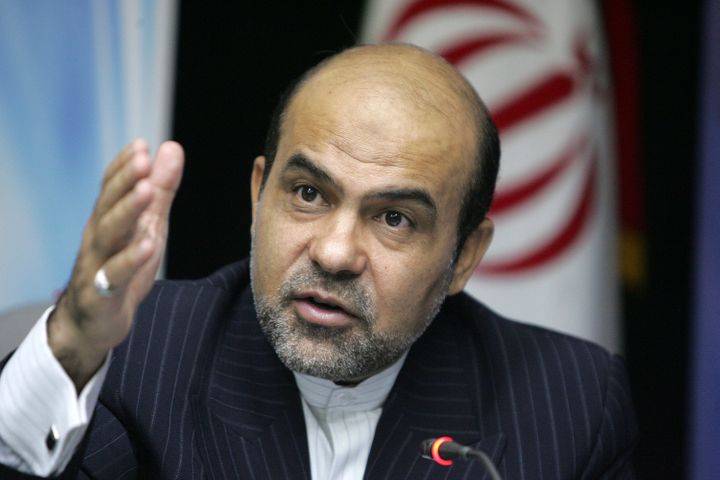Who was the executed Iranian MI6 spy?
He rose to the rank of deputy defense minister in Iran. He was an ardent defender of the regime. However, it turned out that Iran sold its nuclear secrets to the West in exchange for £2m and a British passport to his family. So who was he?

In addition, the information given by Ali Reza Akbari for years was used in the decision to impose international sanctions on Iran. Israel assassinated the nuclear physicist he had deciphered. Akbari had revealed about 100 names before he was captured in 2019 and hanged this year.
A senior British intelligence official flew to Tel Aviv in April 2008 to deliver important news to his Israeli counterparts. Britain now had a mole in Iran with top-level access to the country's nuclear and defense secrets. The spy provided information that left no room for doubt that Iran was pursuing nuclear weapons. This information was critical to convincing the world to impose sweeping sanctions on Iran. The identity of this person has been hidden for a long time. However, on January 11, former deputy defense minister Ali Reza Akbari was executed in Iran on charges of espionage. Thus, the truth that had been hidden for 15 years came to light: Here was the English mole Akbar.
He gave the identity of the murdered physicist.
A popular fanatic and politically hawkish politician, Akbari, a senior commander of Iran's Revolutionary Guards, would later move to London and enter the private sector, but would not lose the confidence of Iranian rulers. In fact, he had started sharing Iran's nuclear secrets with British intelligence as early as 2004. It was in 2019 when it was revealed that Akbari had revealed to the West the secret nuclear weapons program carried out deep in the mountains near Tehran.
Iran also accuses Akbari of revealing the identity and activities of more than 100 officials. Among them is Muhsin Fahrizade, the physicist at the head of the Iranian nuclear program, which Israel assassinated in 2020. The New York Times wrote in September 2019 that the source of intelligence on the Fordo nuclear facility was a British spy. Akbari's Fordo intelligence was passed on by the British to other friendly organizations as well as Israel.
Akbari's most distinctive physical feature, 62 years old when he was executed, was the scar on his forehead. The reason for this permission was that he put his forehead on a clay stone "seal" every day in prayer, as a requirement of the Shiite belief. Born into a conservative middle-class family in the city of Shiraz, Akbari was young when the Iranian Revolution in 1979 overthrew the monarchy and then the war with Iraq began. He and an older brother were drafted into the army, and after fighting on the front lines for six years, he became commander of the Revolutionary Guards. After returning to civilian life, Akbari was promoted to deputy defense minister and served as a consultant in government bodies such as the Supreme National Security Council. He also became close to two powerful people: scientist Muhsin Fahrizade and his deputy and security council secretary Ali Shamhani.
Akbari's official task was to meet regularly with the ambassadors of Britain, China, France, Germany, and Russia to convince them that Tehran was not pursuing a nuclear weapons program. In eight short videos broadcast by Iranian state television after his execution, Akbari, shaved and sitting in an office wearing a suit, details how he was recruited to espionage at the British Embassy in Tehran. However, in a later voice message broadcast by BBC Persian, Akbari said that confessions were made by force.
The story of Egyptian-born Israeli agent Eli Cohen, whose life story is also told in the Netflix series The Spy, has important similarities with Akbari. Cohen also rose in the Syrian hierarchy but was exposed and executed in 1965. Akbari was deciphered in the year the series was shot.
According to his brother, Mehdi Akbari, Akbari was detained in 2008 and spent four months in detention on charges of spying for the UK. However, he was released with the guarantor of his powerful friend.
He regularly went to London. He had a heart attack there in 2010 and stayed. Shortly after, his wife and two daughters also arrived and obtained British citizenship. Between 2010-19 he traveled from London to Tehran at least three times. His brother Mehdi says that Samhain did not tell his brother that they urgently needed him in nuclear and defense matters, and Akbari flew to Iran for the last time in 2019 after that. A few days after his return to Tehran, he was summoned to the Ministry of Intelligence. He was arrested after several interrogations.
Russian intelligence also confirmed Akbar's espionage, according to two Iranians linked to the Revolutionary Guards. Execution of high-ranking officials is rare in Iran. A top technocrat was last executed in 1982. But just days after Akbari's arrest was announced, the guards took him to a walled open area at sunrise. It was hung in a few minutes. Akbari was buried in a large cemetery outside Tehran without his relatives' knowledge. His family said authorities only showed them a video showing his body being washed according to Islamic traditions. Akbari's family was allowed to hold a memorial service in Tehran 40 days after the execution.
